Born: 1944 (Newton, Massachusetts)
Key Positions: Fidelity Investments, Inc.
Fidelity Management & Research Company
Personal History:
Peter Lynch’s spot in the list of greatest investors stems in large part from his work with the Fidelity Magellan Fund between 1977 and 1990. During this 13-year period, the fund posted an annual average return of 29%, beating the S&P 500 index in 11 out of 13 years and building the fund’s assets from $20 million to $14 billion. The fund had the best 20-year return rate of any mutual fund in history.
Lynch graduated from Boston College in 1965 after studying history, psychology, and philosophy. After serving two years in the military, Lynch enrolled at University of Pennsylvania’s Wharton School of Business, from which he graduated with an MBA in 1968. Lynch’s earliest career move was as an investment analyst at Fidelity Investments. He eventually rose through the ranks to become the firm’s director of research (1974-77). In 1977, Lynch became manager of the low-profile Magellan Fund, where his career really took off. He retired in 1990 from his work with Magellan.
Lynch continues to work part-time as vice chairman of Fidelity Management & Research Company, though most of his efforts in the time since his retirement have focused on philanthropy.
Investment Philosophy:
Peter Lynch has frequently been described as a “chameleon” when it comes to investment, as he tends to switch his strategy and style depending upon the situation and what he feels will work best at any given time. He was also known for his frenetic work pace and for being willing to work at any and all times of day. More broadly, Lynch made use of a set of eight fundamental principles when selecting stocks to purchase. He has distributed that checklist to younger investors and the public at various conferences and talks:
- Know what you own.
- It's futile to predict the economy and interest rates.
- You have plenty of time to identify and recognize exceptional companies.
- Avoid long shots.
- Good management is very important - buy good businesses.
- Be flexible and humble, and learn from mistakes.
- Before you make a purchase, you should be able to explain why you're buying.
- There's always something to worry about.
The first of these principles was especially important to Lynch. He always stuck with companies and industries that he knew about or could easily learn about. Along with that principle was a steadfast commitment to due diligence before making any investment decision. Lynch was famous for focusing on a company’s fundamentals, using a bottom-up approach. He only invested for the long run and paid little attention to short-term market fluctuations. (For related reading, see Pick Stocks Like Peter Lynch.)
Noteworthy Publications:
- "One Up On Wall Street" by Peter Lynch with John Rothchild (1989)
- "Beating The Street" Peter Lynch with John Rothchild (1993)
- "Learn To Earn" Peter Lynch with John Rothchild (1996)
Quotes:
"Go for a business that any idiot can run – because sooner or later, any idiot is probably going to run it."
"If you stay half-alert, you can pick the spectacular performers right from your place of business or out of the neighborhood shopping mall, and long before Wall Street discovers them."
"Investing without research is like playing stud poker and never looking at the cards."
"Absent a lot of surprises, stocks are relatively predictable over twenty years. As to whether they're going to be higher or lower in two to three years, you might as well flip a coin to decide."
"If you spend more than 13 minutes analyzing economic and market forecasts, you've wasted 10 minutes."
The Greatest Investors: Bill Miller
-
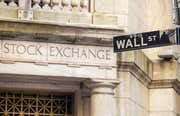 Investing
InvestingWhere Does Peter Lynch Keep His Money?
Read about how legendary mutual fund manager Peter Lynch spends his retirement years and his money. -
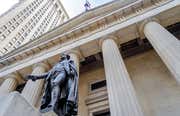 Insights
InsightsPeter Lynch's Eyeballing: When Is It Relevant? (FMAGX, DNKN)
Find out the key principles espoused by stock-picking legend Peter Lynch and whether they are as relevant today as they were in the 1990s. -
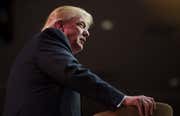 Investing
InvestingTrump’s First Year: 2017 Equity Strategy (BAC)
Equity strategists at Bank of America Merrill Lynch have identified key investment themes for 2017. -
 Insights
InsightsThe January Effect: Why Stock Inflows Are at a Record
Investors poured a record $58 billion into equity mutual funds and ETFs during the four weeks through Jan. 17, according to research by Bank of America Merrill Lynch. -
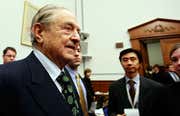 Investing
Investing5 Great Investors Who Aren't Warren Buffett
Here are five other investors, not named Warren Buffett, that are also considered to be the best of the best in the industry. -
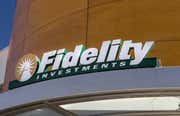 Retirement
RetirementIs Fidelity Right for Your Retirement?
Fidelity is one of the leading brokerage firms in the U.S. The company has several retirement plan offerings and services to help clients meet their goals. -
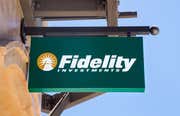 Investing
InvestingFSANX,FBALX,FGBLX,FDYSX: Fidelity Balanced Allocation Funds
Find out about the five balanced allocation mutual funds that Fidelity Investments offers for investors with moderate levels of risk tolerance. -
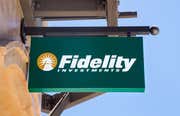 Investing
InvestingFidelity Is Selling More Index Funds
Learn about Fidelity Investments' presence in the index fund marketplace as of 2016 and discover what the company is doing to increase its market share. -
 Investing
Investing9 Stocks Investors Love Too Much: Bank of America
A research report from Bank of America Merrill Lynch identifies vulnerable, over-owned S&P 500 stocks.



